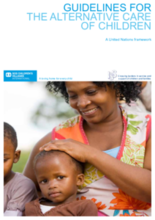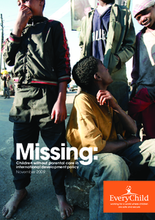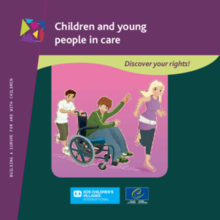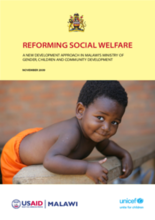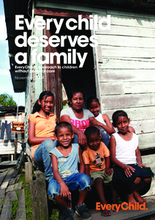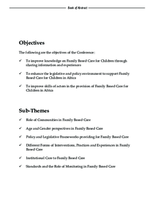Displaying 13211 - 13220 of 14347
This publication introduces the official text of the Guidelines for the Alternative Care of Children (General Assembly A/HRC/11/L.13) and provides questions for reflection on some of the key content areas outlined in the Guidelines.
The following is a summary of the Bulgarian experience in implementing a comprehensive reform of the care and protection system for children at-risk.
Explores the negative impacts of loss of parental care on children. Advocates for reform for children based on assertion that failure to keep children in families, out of residential institutions and off the streets, will be another barrier to the achievement of the Millennium Development Goals
This quasi-experimental study tested a model of adult mentorship and support to improve psychosocial outcomes among youth-headed households in a rural area of Rwanda.
This booklet is designed for children and young people in care to explain how alternative care works, what their rights are as young people in care and whether these rights are being respected.
The alternative care assessment examines the current social welfare systems and processes rather than on the specific quality of care in the various children’s homes as standards have already been developed.
Despite its importance to the poorest in society, the social welfare sector in Malawi has not been performing well. Recognising this, the Principal Secretary (PS) in the Ministry of Gender, Children and Community Development (MoGCCD) requested support from United Nations Children’s Fund (UNICEF) and United States Agency for International Development (USAID), who have taken a new approach: supporting the Government of Malawi (GoM) to build a better social welfare system starting at the top, within the Ministry.
This document outlines EveryChild’s approach to the growing problem of children without parental care by defining key concepts, analysing the nature and extent of the problem, exploring factors which place children at risk of losing parental care, and examining the impact of a loss of parental care on children’s rights.
Programme of presentations and activities
Collection of abstracts from conference presentations

